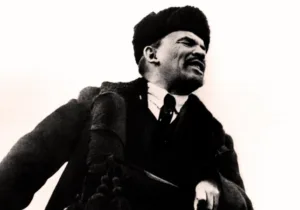Confessed Soviet spy Morton Sobell died in December, age 101. He was the last surviving major participant in the atomic espionage case of his co-conspirators Julius and Ethel Rosenberg, who were executed in 1953 for passing atomic secrets to the Soviets.
“I bet on the wrong horse,” an elderly Sobell avuncularly admitted to a reporter in 2011. He was recruited by Julius Rosenberg to spy for the Soviets during WWII when they both worked in the defense industry. Although he later claimed they only intended to help an ally against the Axis, his espionage for the Soviets continued after the war.
The Rosenberg and other collaborators were arrested in 1950, prompting Sobell to flee with his family to Mexico, only to be returned by Mexican police. He was sentenced to 30 years but was released early in 1969. Although denying guilt for espionage, he joyfully visited the Soviet Union, East Germany, Vietnam and Cuba. The global left championed his cause as martyr wrongfully imprisoned for his politics, and he insistently wrote and spoke about his innocence.
Not until 2008 at age 91 did Sobell admit his espionage for the Soviets, acknowledging the Rosenbergs’ guilt also, though minimizing the documents he shared as mostly unimportant and not threatening U.S. security. In fact the secrets he stole likely helped shoot down U.S. pilots in Korea and Vietnam. His memoir described America as the guilty party in the Cold War.
Sobell was raised by Russian emigre Communist parents and was himself apparently a believer from his boyhood in Marxism as inevitable historical force. The Rosenbergs also were youthful Communist zealots. They saw themselves as servants to history. Not even Stalinist mass murder discouraged their ardor. “That comes with the territory,” Sobell explained. He thought the USSR was a “genuine socialist country” but late in life realized it was “static” and not “dynamic” like capitalism.
It’s hard to believe today, but for much of the 20th century one quarter of humanity, over one billion people, lived under Marxism. Tens of millions if not hundreds of millions genuinely believed in Marxism. It was the future. It was scientific. It was the final chapter. Even non Marxists sometimes admitted its moral superiority. Others who opposed it still feared it would prevail. It had history on its side. Famously, journalist Whitaker Chambers wondered, in his conversion away from Marxism to Christianity and Western Democracy, if he had joined the losing side.
But Chambers as a Christian should have been more confident. History belongs to God. To align with His purposes is by definition to be on the winning side. That pathway maybe lit by the flames of burning martyrs, but it concludes with holy vindication, righteousness and peace.
To be on the right side of history is to align with human dignity, justice, liberty, fairness and decency, acknowledging God’s image in each person. No matter how supposedly unpopular or scorned, this pursuit of God’s purposes in the world will always be vindicated. The imposters and charlatans who propose tyranny, torture, terror and oppression are the ultimate and natural future for humanity are always proven wrong. Their destination is the graveyard. But righteousness, love and peace are eternal.
Sobell for most of his century of life thought Marxism was predestined and eternal. He lived long enough to learn otherwise. May others tempted to tout inhuman and ungodly political orders learn from his example.






